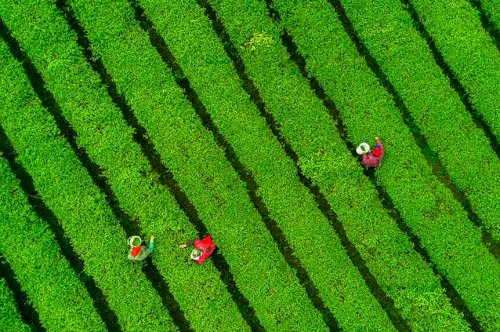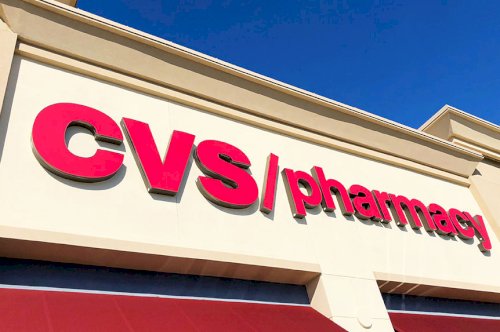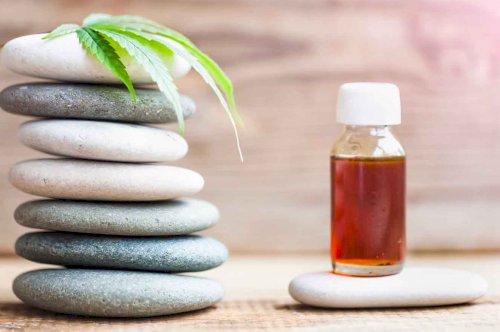CBD Oil in Starbucks Coffee: Coming Soon?

Starbucks isn’t hopping on the CBD bandwagon any time soon — or is it? Though Starbucks CEO Kevin Johnson made a statement in January saying that the coffee giant wouldn’t be offering cannabis-infused drinks in the near future, a recent report pointed to the $16 billion potential of the CBD market as reason for them to reconsider.
The initial story was based on a question by a CNBC reporter in an interview segment on the show “Squawk on the Street.” The reporter asked Johnson, “Can I get a cannabis triple venti?”
Johnson said, “Well you know, Jim, you can’t get a cannabis triple venti today — but you know, we’re well aware of what’s been happening around CBD, THC, and all the trends in the industry.” Later, he added, “We’re going to keep watching this, but right now, it’s not on the road map,” seemingly closing the door on speculation.
Despite Johnson’s dismissive comments, some industry experts believe Starbucks could be poised for a big move into the CBD market. Wall Street investment banking firm Cowen gave ample reason for an eventual pivot, in a 100-page report that described Starbucks as “the most forward-thinking” brand in its competitive set (which includes companies like McDonalds, Tim Hortons, and Dunkin Donuts). According to Cowen analyst Andrew Charles, “We could envision Starbucks ultimately piloting the ingredient.”
The biggest reason that Cowen cited for its optimism is a $16 billion projection of retail sales of CBD products by the year 2025. This figure isn’t even the largest projection analysts have come up with — Brightfield Group conjured a $22 billion estimate for the year 2022.
Other Cafe Companies Predicted to add CBD to Their Menu’s
Other forecasts are much more modest, such as one given in New Frontier Data’s Hemp Business Journal, which estimates the total market for CBD in 2022 will be $1.3 billion. The vast discrepancy between predictions is an indication of just how volatile the CBD industry is at the moment.
“The dynamics are fluid, likely delaying adoption from major coffee players like Starbucks in the near term,” Cowen’s report said.
For smaller competitors, though, there’s no time to waste — if they want any chance of nabbing a piece of the lucrative CBD coffee (and CBD tea) market, fortune favors the bold. The lure of CBD-infused drinks spread to craft independent coffee shops in 2018, having a major impact on early adopters, with lines out the door and a healthy value-added metric.
But independent coffee shops find it easier to adopt new trends than national chains like Starbucks, which look for product line uniformity in their offerings. And crackdowns on CBD-infused food and drinks in places like New York City would make such uniformity difficult.
In February, the New York City Department of Health said that restaurants, bars, and other venues cannot sell CBD-infused edibles or drinks. During a routine inspection, they removed $1,000 worth of CBD products from Manhattan restaurant Fat Cat Kitchen’s shelves, put them into bags reading “embargoed — unlawful to move or disturb,” and left them in possession of the restaurant’s owner.
While hemp was declared legal on a national level by the 2018 Farm Bill, and CBD was recently rescheduled from a Schedule 1 substance to the far tamer Schedule 5, CBD’s legal status remains unclear. After the Farm Bill passed, FDA Commissioner Scott Gottlieb issued a statement saying that companies must await the agency’s regulation of CBD oil.
“Selling unapproved products with unsubstantiated therapeutic claims is not only a violation of the law but also can put patients at risk, as these products have not been proven to be safe or effective,” Gottlieb wrote. “At the same time, we recognize the potential opportunities that cannabis or cannabis-derived compounds could offer and acknowledge the significant interest in these possibilities. We’re committed to pursuing an efficient regulatory framework for allowing product developers that meet the requirements under our authorities to lawfully market these types of products.”
Until that time, Starbucks will probably wait on the sidelines.








